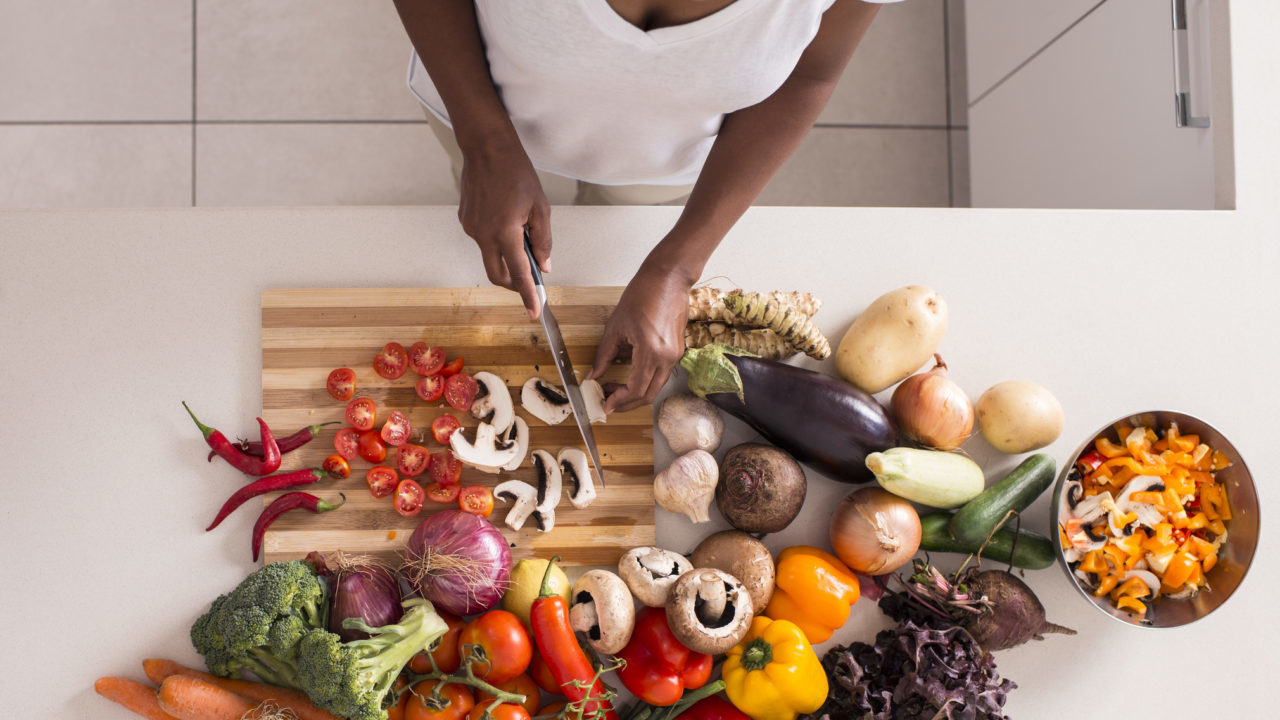Health
Vegan Fitness For Beginners
James Dodds, owner of A-List Nutrition:
- How to build muscle on a vegan diet
Protein is one of the most essential elements to building muscle, and while some plant protein sources may not have all 20 amino acids found in meat protein, combining protein sources into complete proteins will help you reach your required amount to start building muscle. It’s recommended you get 1.6-2g of protein per kilo of bodyweight so as long as you’re meeting this target, meat isn’t a requirement in building stronger muscles.
- How to maintain or reduce body fat while exercising
Since you’ll need to eat more plant foods to reach your protein goals, this will mean you’ll be eating more carbs to get there. Carbs aren’t the enemy, but many plant-based foods contain higher levels of carbs and fats that can mean your body fat goes up when building muscle. This might not be a concern of yours but for those looking to lean up, you’ll need to observe the macros of your diet carefully. The general rule is 45-65% of calories from carbohydrates, 20-35% from fats and 10-35% from protein.
- Watching out for deficiencies
Some common deficiencies of a plant-based diet can include calcium, which can lead to weaker bones, vitamin B12, which can contribute to breathlessness and muscle weakness, and vitamin D, which affects muscle recovery. Taking care to include these vitamins and minerals in your diet or supplementing them long-term can help you reach your fitness goals faster and more effectively.
Jo Gray, Nutritionist at Feelnoo:
“To achieve good results from your workouts it’s a good idea to take on a suitable amount of protein generally. It is a myth that you can only achieve lovely toned muscles by eating huge amounts of animal protein! So if you’re vegan/plant-based (I’m vegetarian), it’s important to include some of the following things in your daily meals…”
These are some protein choices to include:
- Hemp Seeds are amazing! Totally full of plant protein. A Versatile seed that can be used in the same way as rice or quinoa.
- Quinoa contains protein plus carbohydrate which will be good for energy.
- Tempeh, pulses such as chickpeas, kidney beans, pinto beans, lentils, chia seeds, pumpkin seeds, sunflower seeds.
- A good vegan protein shake. Pea protein is just an amazing way to take on protein either as a shake or used in some yummy recipes!
- A well-balanced diet is always the way forwards when working out. Make sure that good carbohydrates, such as all the colourful vegetables, are included too.
- Good fats are a must in any diet – things like avocado, oils, like olive oil, hemp oil and sesame oil.
- Having a banana or some Medjool dates before your workout is a great way to get a burst of energy pre-workout.
- A post-workout meal is also advised to make full use of feeding those muscles that you’ve just worked – so taking on protein from the list above is perfect. I always like to add in good fats too, my perfect post-workout snack is a simple combo of pulses, avocado and hemp seed. All topped with a pimped up seed mix and nut mix that I always have hanging around ready for exactly these ’no time to prepare’ moments.
- Having a good quality (high potency) multivitamin will also enhance your nutrition and performance when exercising.
- Water is essential to hydrate your body, flush out toxins and transport nutrients around the body.
David Wiener, Nutritionist at Sankofa Snacks:
Without consuming protein-rich food such as meat and dairy, it can be difficult for vegans to obtain the nutrients needed to function optimally, although it absolutely can be done. Here’s are some tips on how to maintain a healthy and nutrient-rich diet:
- Pack in the Protein
Protein is incredibly important, especially if you exercise regularly, but being a vegan won’t impede any workout, as long as protein is supplemented. If the body does not receive enough protein, starvation mode kicks in, in which the body breaks down muscle tissue and loses muscle mass.
- Don’t Forgo Fats
Fats are an important source of energy used to fuel longer exercise and endurance activities, like hiking and cycling. Essential fatty acids are especially fundamental for fast recovery from training as they lower inflammation levels in the body. If inflammation remains elevated after exercise, it can negatively impact muscle soreness and tissue repair. Omega 3 fatty acids have been shown to increase blood flow to muscles during exercise, decreasing muscle soreness and reducing swelling. Some of the best vegan options for Omega 3 include vegan-friendly supplements, flax seeds, seaweed, algae, berries and cauliflower.
- Be Wise when it comes to Vitamin B
In addition to B12, this group of vitamins is essential to convert food into energy, help reduce blood sugar and help to make and break down fatty acids and maintain healthy skin, hair and nails. They also support red blood cell production, immune function and contribute to the production of serotonin that ensures a healthy sleep cycle, appetite and mood. To ensure your plant-based diet is packed full of B Vitamins, ensure you’re eating brown rice, quinoa, almonds, sesame seeds, walnuts, and kale on a regular basis.
- Fight Fatigue with Zinc
Zinc is essential if you’re into your fitness and following a plant-based diet as a deficiency in this mineral can alter your energy and endurance. Limiting zinc intake can lessen oxygen uptake, leading to fatigue more quickly and slower recovery. Keep your zinc levels topped up by munching on sunflower and pumpkin seeds, almonds, walnuts and pecans.
- Adventurous Snacking
Vegan diets can often be restrictive and for that reason could become monotonous. To avoid this, keep snacking adventurous and be on the lookout for newly launched vegan snacks.
We’ve also created this resource for more information on vegan fitness for beginners.














